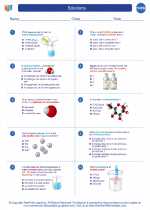Ion Channels
Ion channels are pore-forming membrane proteins that allow ions to pass through the cell membrane. These channels play a crucial role in various physiological processes such as nerve signal transmission, muscle contraction, and maintaining the balance of ions within cells.
Structure of Ion Channels
Ion channels are made up of multiple subunits, each containing a pore through which specific ions can pass. The structure of ion channels is highly selective, allowing only specific ions to pass through based on their size and charge.
Types of Ion Channels
There are several types of ion channels, including:
- Ligand-gated ion channels: These channels open or close in response to the binding of a specific molecule, such as a neurotransmitter.
- Voltage-gated ion channels: These channels open or close in response to changes in the membrane potential.
- Mechanically-gated ion channels: These channels open or close in response to physical forces, such as stretching of the cell membrane.
Function of Ion Channels
Ion channels play a vital role in maintaining the resting membrane potential of cells, as well as in generating action potentials in excitable cells such as neurons and muscle cells. They also contribute to the regulation of various physiological processes, including the secretion of hormones and neurotransmitters.
Regulation of Ion Channels
Ion channels can be regulated by various factors, including the binding of specific molecules, changes in membrane potential, and post-translational modifications. These regulatory mechanisms allow cells to fine-tune the activity of ion channels in response to different physiological conditions.
Study Guide for Ion Channels
- Define ion channels and explain their role in cellular physiology.
- Describe the structure of ion channels and their selectivity for specific ions.
- Discuss the different types of ion channels and their respective modes of activation.
- Explain the function of ion channels in generating action potentials and maintaining cellular homeostasis.
- Explore the regulatory mechanisms that control the activity of ion channels in response to various stimuli.



